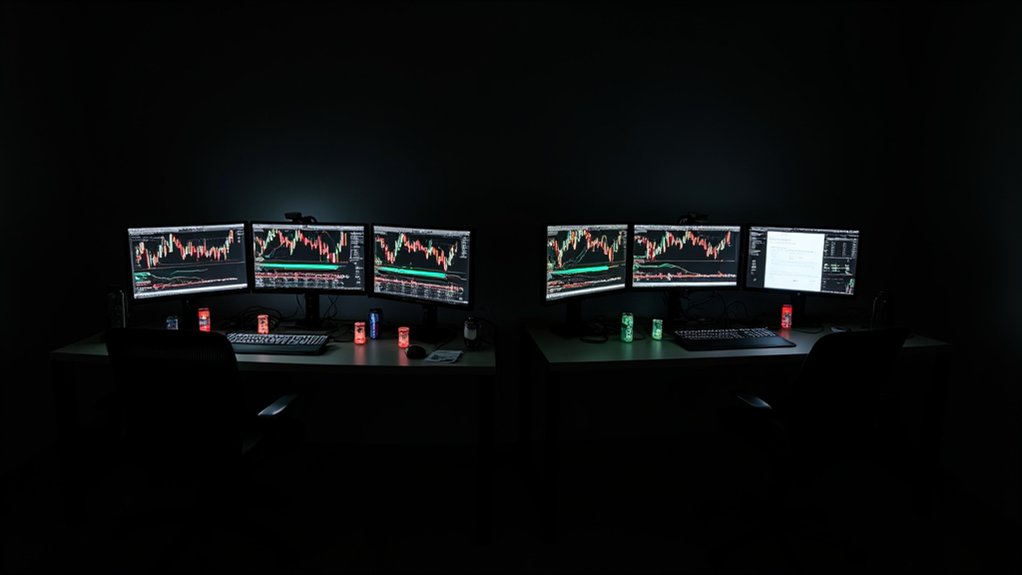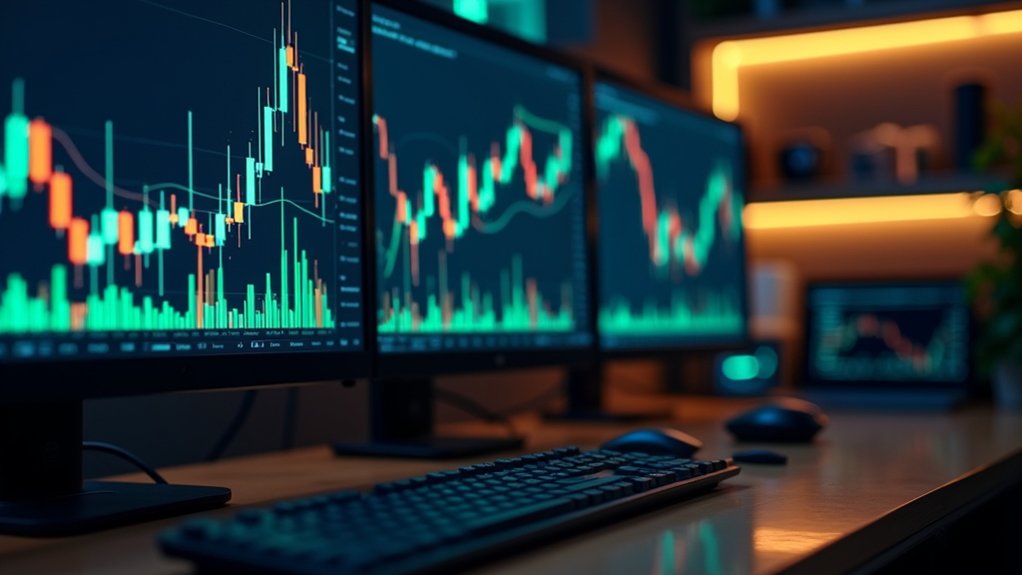Stop Out Level is the minimum margin level percentage at which your broker automatically closes your open positions to prevent your account from going negative. It works by calculating your equity divided by used margin, multiplied by 100.
Stop out automatically closes your positions when your margin level drops too low, calculated as equity divided by used margin times 100.
When this percentage drops to the stop out threshold—typically 50% at most brokers—the system begins liquidating your trades, starting with the most unprofitable position first. This continues until your margin level rises back above the critical threshold.
Unlike a margin call, which serves as an advance warning, stop out is an immediate, automated action that cannot be stopped once triggered. Think of it as an emergency brake that engages automatically when your trading account runs dangerously low on available funds.
A margin call is triggered when your account equity falls below the required margin levels, giving you an opportunity to deposit additional funds or close positions voluntarily before reaching the stop out level. The used margin represents the amount of capital currently locked in your open positions and is therefore unavailable for opening new trades.
In short: Stop out is the margin level at which your broker automatically closes positions to protect your account from negative balance.
Example in Action
You have an account with $1,000 balance and open a position on USD/NGN requiring $200 margin.
Your broker's stop-out level is 20% of used margin, which means $40 in this case.
After unfavorable price movement, your floating loss grows to $960, dropping your equity to just $40.
At this point, your margin level hits exactly 20% ($40 equity ÷ $200 margin × 100%), triggering the broker's automatic stop-out that immediately closes your position to prevent your account from going negative.
This automatic closure occurs before a margin call would typically require you to deposit additional funds, as the stop-out is the broker's final protective measure.
The margin functions as a deposit requirement that enabled you to control this leveraged position in the foreign exchange market, but the risks of margin trading become evident when losses approach this threshold.
Why It Matters
Understanding how stop out levels work in theory is one thing.
Living through forced liquidation while trading the Naira, Cedi, or Rand? That's another.
Stop out matters because it's the broker's nuclear option—automated, final, irreversible. Once triggered, positions vanish. No debate, no negotiation.
For African traders using high leverage chasing volatile pairs, it's the difference between drawdown and total account wipeout. Overleveraging isn't theoretical here; it's existential.
Common Questions
Can African Brokers Change Stop Out Levels Without Notifying Traders First?
Many African brokers can change stop out levels without prior notification, especially those offshore or lightly regulated. Contract terms often permit unilateral adjustments during volatility. Traders should review agreements regularly and choose well-regulated brokers for greater transparency and protection.
Does Stop Out Level Differ When Trading African Currency Pairs Versus Majors?
No, brokers typically apply identical stop out levels across all currency pairs, including African and major pairs. However, African pairs may trigger stop out faster due to higher volatility and larger pip movements eroding margin quickly.
How Do Power Outages Affect Stop Out if I Cannot Monitor Trades?
Power outages eliminate trader ability to monitor margin levels or respond to adverse movements. Automated broker systems execute stop out once equity crosses the threshold, regardless of connectivity. Positions liquidate without intervention, often causing total account depletion during extended disconnections.
Will My Broker Stop Me Out Faster During African Market Hours?
Stop-out triggers instantly when margin falls below the threshold, regardless of African or global hours. However, wider spreads and lower liquidity during African sessions may cause worse execution prices, increasing realized losses upon closure.
Can I Negotiate a Lower Stop Out Level With My Broker?
Retail traders in Africa cannot negotiate stop out levels with brokers, as these thresholds are standardized and automated. Only institutional or high-volume clients may access custom arrangements, but such opportunities remain rare across the continent.
« Back to Glossary Index




